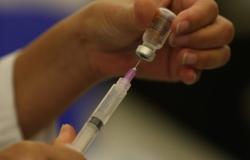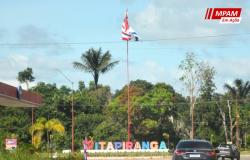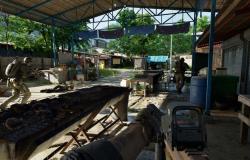Even after numerous warnings and measures adopted by health authorities, dengue cases continue to advance in the State. Rio Grande do Sul has already recorded 47 deaths from the disease. In Novo Hamburgo, as of Monday afternoon (1), more than 4,600 cases had already been confirmed, according to the Case Panel. Furthermore, the city counts 5 deaths from dengue in 2024. The city declared an emergency on March 4th. And the month of April arrives with the promise of reaching the peak of cases, as indicated by the Municipal Health Department.
On the Novo Hamburgo City Hall map of dengue cases (see below), it is possible to observe the evolution of the disease in all locations. If in epidemiological week 7, which corresponds to the week between February 11th and February 17th, only Vila Diehl had more than 13 cases, in epidemiological week 13, corresponding to the week between March 24th and 30th, more than 16 neighborhoods registered were above this number.
The map also shows that the vast majority of cases in Novo Hamburgo are concentrated in the limits of neighboring cities, in five neighborhoods: Vila Diehl and São José, to the north; Canudos, in the east; Boa Saúde, in the west; and Santo Afonso, in the south.
Reaction against mosquito
According to the survey, it is possible to observe that all neighborhoods in Novo Hamburgo have people infected with dengue. The Municipal Health Secretary, Marcelo Reidel, explains the strategies adopted and intensified to prevent new cases and try to contain the spread of the disease.
“We are observing movement on the map. In the first weeks we had spots in the upper part, right at the borders, and these areas are entering the municipality’s territory. We talk a lot about the importance of this partnership with other municipalities. Actions need and must be thought of together, as the mosquito has no limits, it will travel”, argues Reidel.
He highlights that, from the first confirmed case in the municipality, a vector blocking action is carried out, which consists of applying insecticide within a radius of 200 meters from the area of the positive case. Home inspections and collection of irregularly discarded waste are also carried out every day. According to the City Hall, around 25 buckets of rubble are collected every week.
“We are intensifying existing measures. One situation that is very clear is that we can end up with a waste deposit one day, and the next day it will be there again. At this point, people need more awareness,” he highlights.
The projection, as Reidel notes, is that the month of April will reach the peak of cases, after which the curve will stabilize and then begin to fall. “Without a doubt, dengue is here to stay in our State,” he says, when analyzing the number of cases in 2022. “That year, we broke the thousand cases mark. Dengue was something new, difficult to get used to, that’s when we did a series of qualifications with all the professionals”, he recalls.
Improvement in the health structure
To deal with dengue cases, one of the first actions of the Department of Health was to set up 25 primary care units to monitor, test and hydrate dengue cases. “We created a hydration point next to the unit in the Kephas neighborhood, where people receive serum,” he explains.
There is also a hydration point at UPA Canudos, open until 8 pm, and another at UBS Santo Afonso. Reidel adds that this week the Secretariat will provide another service for people suspected of having dengue. It will be another hydration point, open 24 hours a day, at UPA Centro. “The space will serve as support for all of our units, receiving more aggravated patients to use this service,” he says.
An increase was also made in the structure of UPAs in accordance with population demand – as there is an overcrowding of dengue cases and other respiratory diseases. For example, on some days of the week, there are four clinical doctors attending, instead of two.
The health department also notes that medical appointments increased by 80%, compared to other years in the same period. Of this number, 40% are dengue cases. Therefore, to be able to serve everyone, the Secretariat also replaced armchairs and stretchers with chairs, thus being able to accommodate a greater number of people to receive care.
Since mid-March, the UBSs Canudos (Rua Sílvio Gilberto Christmann, nº 1451) and Santo Afonso (Rua Assunción, 85) have also started to open on weekends exclusively to treat suspected cases of dengue, from 8 am to 5 pm hours. The UBS is located at Rua Sílvio Gilberto Christmann, nº 1451. The Secretariat emphasizes that pediatric care on weekends, even if suspected of dengue, continues to be provided at the Centro and Canudos UPAs, as always.
How service is provided in the units
As Reidel explains, the patient who arrives to be treated at one of the public health units undergoes screening, medical care and testing (which is defined by the professional). Since 2022, the health department has provided rapid tests, which facilitate diagnosis. In most cases, the patient is referred for hydration. Currently, the treatment time for mild conditions is 5 to 6 hours.
For him, the population has been looking for the units in time so that the conditions do not get worse. This Monday (1), nine patients remained hospitalized at the Novo Hamburgo Municipal Hospital with dengue fever, according to the Health Department.
How to help reduce mosquito outbreaks
The population’s help is essential to reduce dengue cases in the municipality. Reidel advises anyone who has dengue symptoms or not to inspect their home, in the courtyard and internally, once a week.
“Even though we carry out property inspections, we need the population to do this work weekly. Aquatic plants, for example, are suitable for storing mosquitoes. Mosquito eggs last more than 400 days. If that flower pot contains eggs, when water is added and the temperature is suitable, the eggs will hatch. states.
What to do when you have symptoms
Reidel highlights the importance of the population seeking medical attention if they experience any symptoms of the disease on the first day. “Look for a basic unit closer to your home. It is extremely important to start appropriate treatment at the right time. If the patient waits, they may arrive dehydrated”, he warns. The test, according to him, is complementary to medical conduct. The main thing is to start treatment.
As he recommends, you need to drink lots of water and not use anti-inflammatories. “For dengue, today, in 99% of indications, the patient uses analgesics and antipyretics. Any medication that may contain anti-inflammatory drugs cannot be used unless you have a doctor’s instructions to do so,” says Reidel.
Pay attention to dengue symptoms
High fever (39°C to 40°C), lasting two to seven days
Retro-orbital pain (behind the eyes)
Headache
Body ache
Joint pain
General malaise
Nausea
Vomiting
Diarrhea
Red spots on the skin, with or without itching
Did you like this article? Share!
Tags: map shows highest concentration dengue cases Novo Hamburgo
--





